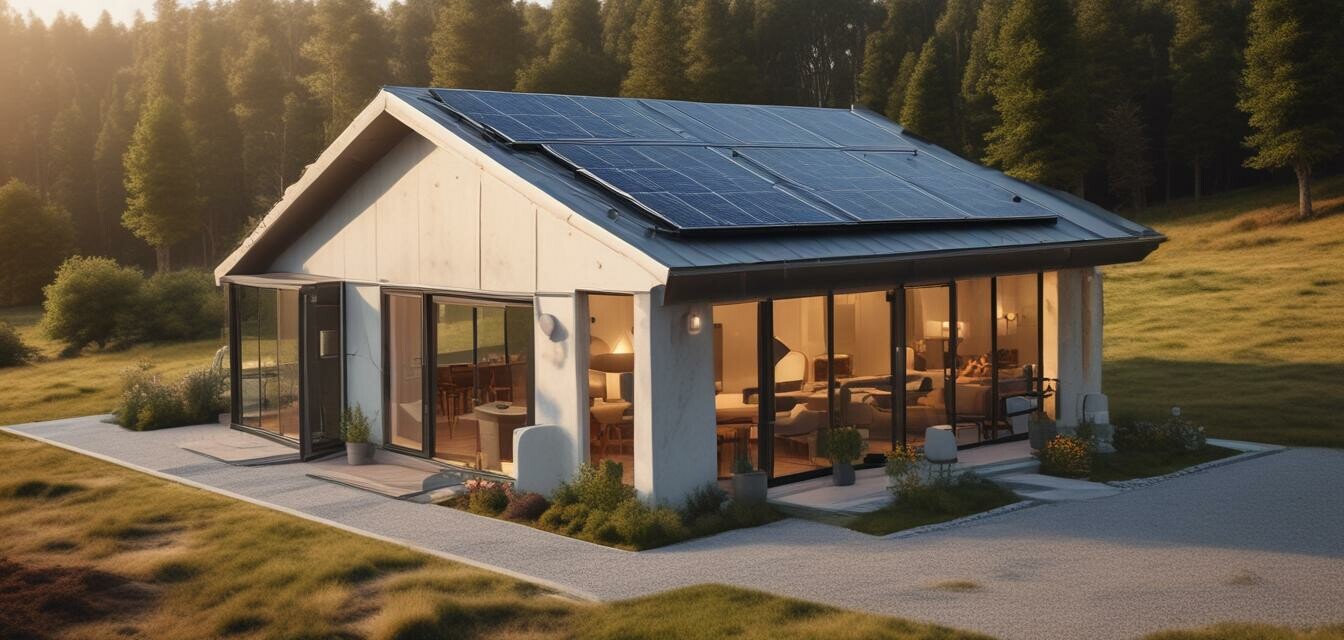
How to Optimize Your Off-Grid Solar System for Maximum Efficiency
Key Takeaways
- Understanding solar panel orientation and placement can significantly affect energy production.
- Upgrading charge controllers and battery storage is crucial for improving system efficiency.
- Regular maintenance and monitoring help to ensure your off-grid solar system runs optimally.
- Choosing the right equipment and components tailored to your needs can lead to better performance.
- Implementing energy conservation practices will maximize the benefits of your solar setup.
Introduction
As the world becomes increasingly reliant on renewable energy, optimizing your off-grid solar system for maximum efficiency is essential. By understanding the best practices for configuration and equipment upgrades, you can ensure that your system produces as much energy as possible. This guide will provide you with tips on enhancing your solar system's performance.
Understanding Your Off-Grid Solar System Components
Your solar system comprises various components working together to harness energy efficiently. Here’s a quick overview:
| Component | Description |
|---|---|
| Solar Panels | Convert sunlight into electrical energy. |
| Charge Controllers | Regulate battery voltage and prevent overcharging. |
| Battery Storage | Store excess energy for use when sunlight is not available. |
| Inverters | Convert DC electricity from solar panels to AC electricity for home use. |
| Off-Grid Appliances | Devices designed to operate efficiently on solar power. |
Optimizing Solar Panel Placement
The placement of your solar panels is vital for maximizing energy capture. Consider the following tips:
- Install panels at an angle that optimizes sun exposure based on your geographical location.
- Avoid placing panels in shaded areas; even partial shading can reduce output.
- Regularly clean your panels to remove dirt and debris that may block sunlight.
Choosing the Right Charge Controller
A charge controller is responsible for regulating the energy flow into your battery storage. By selecting the right type of charge controller, you can significantly increase efficiency:
- PWM (Pulse Width Modulation): Cost-effective for small systems.
- MPPT (Maximum Power Point Tracking): Maximizes energy harvest from solar panels, ideal for larger systems.
Upgrading Your Battery Storage
Your storage is only as good as the batteries you use. Here’s what to look for when upgrading:
- Depth of Discharge: Choose batteries with a higher DOD to maximize usable capacity.
- Cycle Life: Opt for batteries with a longer cycle life to reduce replacement frequency.
- Type: Lithium-ion batteries offer longer life and efficiency compared to lead-acid options.
Regular Maintenance and Monitoring
To keep your system functioning at its peak, regular maintenance is key:
- Check connections and wiring periodically for wear and tear.
- Monitor battery levels and system performance regularly to identify issues early.
- Schedule professional inspections annually to ensure everything functions properly.
Implementing Energy Conservation Practices
Improving your energy efficiency can dramatically extend the capabilities of your off-grid solar system. Here are some strategies to consider:
- Use energy-efficient appliances that require less power.
- Incorporate programmable timers for lighting to reduce usage.
- Utilize natural light during the day to minimize electric lighting needs.
Conclusion
Investing in off-grid solar solutions is a wise step toward energy independence. By understanding how to optimize your solar system for maximum efficiency, you will enjoy reliable power without the worry of grid failures. Implementing the practices discussed in this guide will help you make the most out of your solar investment.
Tips for Beginners
- Start with an energy audit of your home to understand your energy needs.
- Research different types of solar systems to find the best fit for your lifestyle.
- Consider reaching out to professionals for customized solutions.
Pros
- Reduces dependency on the grid.
- Potential savings on monthly energy bills.
- Environmentally friendly alternative to fossil fuels.
Cons
- Initial setup costs can be high.
- Performance may vary based on location and weather conditions.
- Requires regular maintenance to ensure efficiency.
Further Reading
Check out our other articles for more detailed insights into off-grid systems:


